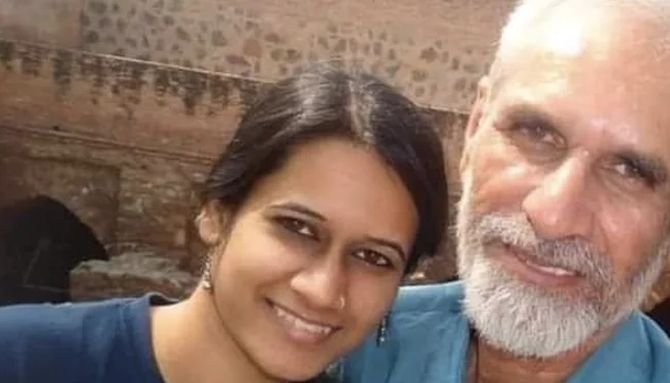
The Delhi high court on Monday granted bail to Jawaharlal Nehru University student Natasha Narwal, arrested last year in May in connection with the communal riots in north-east Delhi to perform the last rites of her father who succumbed to COVID-19.
The court granted the relief as her brother is also infected with COVID-19 and the state did not oppose the plea.
"In view of the foregoing and in the interests of justice, we are of the view that the release of the applicant/appellant (Natasha Narwal) is imperative in this hour of grief and personal loss and in the facts and circumstances of the case.
"We accordingly direct that the appellant/applicant Natasha Narwal be released forthwith on interim bail for a period of 3 weeks," a bench of Justices Siddharth Mridul and A J Bhambhani said.
It said that interim bail granted to Narwal, a Pinjra Tod activist, would be subject to her furnishing of a personal bond of Rs 50,000.
Pinjra Tod (Break the Cage) was founded in 2015 to make hostels and paying guest accommodations less restrictive for women students.
The bench also directed that Narwal, represented by advocate Adit S Pujari, will provide a cell phone number to the SHO, P S Crime Branch (Special Cell) on which she may be contacted at any time and which she has to keep operational during the entire period of her release.
'In addition, the appellant/ applicant shall also furnish a cell phone number to the SHO, PS Urban Estate, Rohtak, Haryana, which is stated to have jurisdiction over the place of the appellant/applicant's residence at 1225, Sector-3, Rohtak, Haryana.
'The appellant/applicant shall comply with all governmental rules in force by reason of the prevailing pandemic and observe all precautions as stipulated therein without demur, including but not limited to wearing a PPE kit at the time of the cremation,' are the other conditions imposed by the court on Narwal while granting her the relief.
The bench also directed that she shall not leave territories of Delhi and Haryana without permission of the court and shall reside at the address as per prison records and as mentioned in the application and on expiry of the three weeks she shall surrender before the jail authorities.
Three days before surrendering, she has to undergo an RT-PCR test and provide the results of the same to the jail authorities, the court said.











 © 2025
© 2025